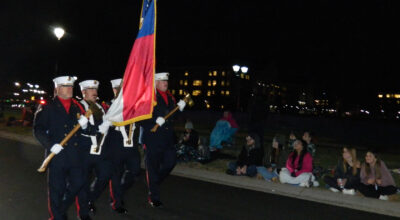North Carolina receives scorecard on LGBTQ equality
Published 12:00 am Thursday, January 11, 2018
The Human Rights Campaign Foundation on Wednesday released its fourth annual State Equality Index, assessing state legislation as it affects equality on sexual orientation.
North Carolina was found wanting.
The report was released in partnership with the Equality Federation. States were ranked in four categories based on their pro- and anti-LGBTQ laws.
The report used four categories to rank states: “working toward innovative equality,” “building equality,” “solidifying equality” or “high priority to achieve basic equality.”
North Carolina fell into the last category, meaning it is a state most likely to have laws considered detrimental to the lesbian and gay community.
North Carolina is one of 31 states that lacks explicit state-level protections for LGBTQ people, the report said. That puts gay people and their families at risk of being fired, evicted or denied services because of their sexual orientation or gender identity, it said.
In 2017, the General Assembly failed to repeal House Bill 2, which required transgender people to use public restrooms that matched the gender on their birth certificates. Instead, a compromise bill was passed giving the General Assembly control over restroom access laws.
The report said this eliminates the ability of any city, state agency, public university or school board to adopt policies that ensure transgender people have access to restrooms consistent with their gender identity.
The foundation issued each state a scorecard on positive and negative legislation.
Positives for North Carolina included anti-bullying laws that provide specific protection based on sexual orientation and gender identity and laws that ensure parental presumption for same-sex couples.
Negative legislation cited in the report included laws on sodomy and those that criminalize behaviors that carry a low or negligible risk of HIV transmission.
The report also identified North Carolina as having an unequal age of consent for same-sex couples. North Carolina’s age of consent is 16, but the law applies only to “vaginal intercourse.”
Matt Hirschy, interim executive director of Equality NC, a gay-rights advocacy group, said the LGBTQ civil rights movement must be cognizant of protecting gay, bisexual and transgender people, particularly youths, in North Carolina.
Hirschy called the House Bill 2 compromise “deeply discriminatory legislation” and said that it prevents municipalities from protecting vulnerable communities as well as transgender and nonbinary individuals.
“The state equality index makes it very clear how far North Carolina still has to go before being a truly inclusive and equitable place for LGBTQ people,” said Hirschy. “While we are grateful for some positive legislation, we remain disheartened by the attacks of North Carolina’s leadership on hard-won rights of LGBTQ North Carolinians.”





